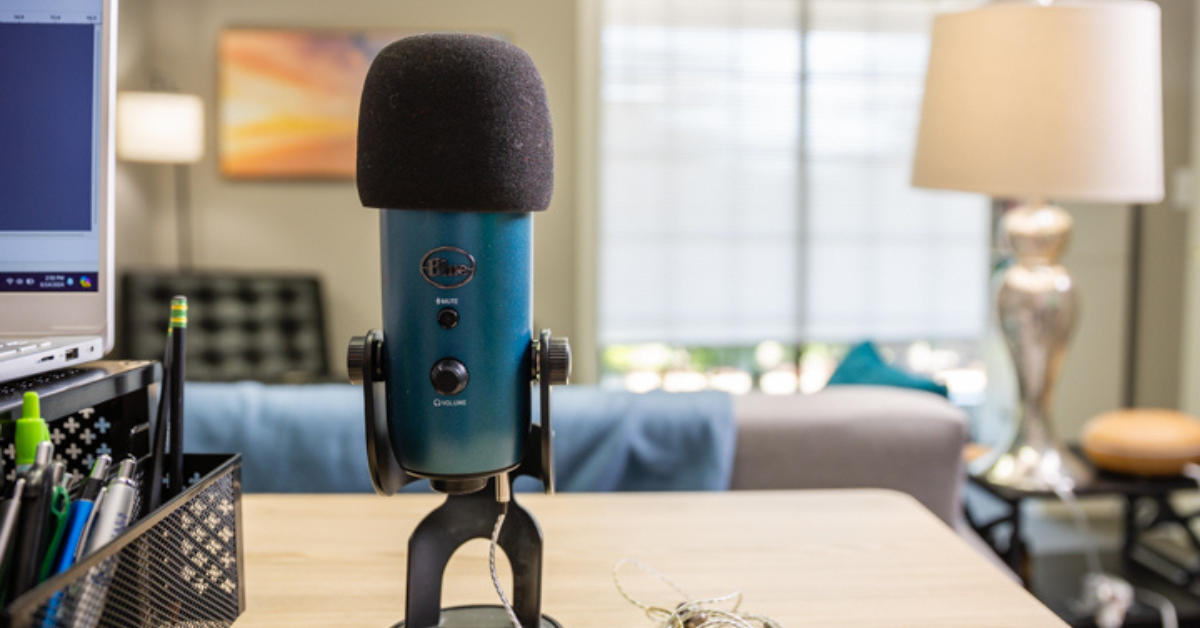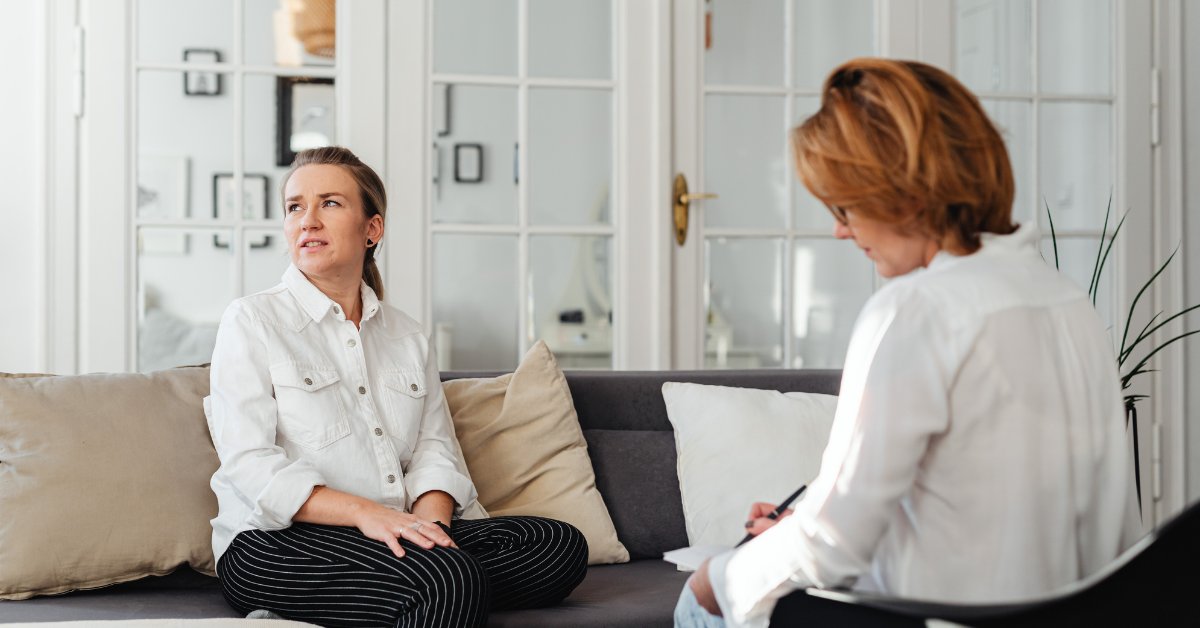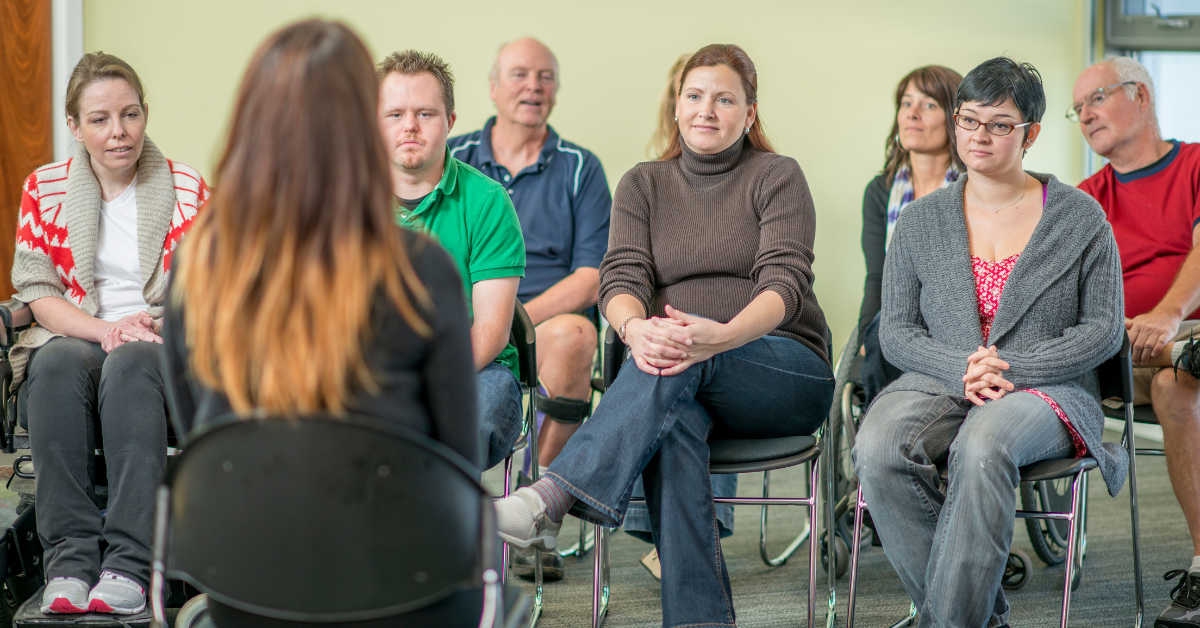80. Where Are Our Guests Now
Where are our guests now? To mark the Hope for Anxiety and OCD 80th episode, I’m giving you some updates on some of our past guests.
Some of them recorded their own updates and some sent us the update via email to read.
- (00:50) Holley Gerth – https://holleygerth.com/
- (01:29) Peyton Garland-https://www.ibelieve.com/author/peyton-garland/
- (04:02) Dr. Irene Kraegel-https://www.themindfulchristian.com/
- (04:56) Steve Hinton-https://kingdomology.org/
- (06:51) Dyana Robbins-https://www.dyanarobbins.com/
- (07:55) Lindsey Castleman-https://inrelationship.us/lindsey-castleman
- (08:27) Aaron Strong-https://inrelationship.us/aron-strong
- (09″49) Dr. Katie Aitken-https://www.tranquilmindnaturopath.com/
- (10:39) Cat Sharp-https://catsharp.com/
- (12:10) Alexa Hulsey and Trey Brackman of Encircle Acupuncture- https://encircleacupuncture.com/
- (13:26) Kelly Ehlert-https://www.iamprioritypt.com/
- (14:31) Jeff Allen-https://podcasts.apple.com/us/podcast/simple-mental-health/id1555394293
- (15:58) Jennifer Harshman-https://www.harshmanservices.com/
Transcript
Carrie: Welcome to hope for Anxiety and OCD episode 80. I thought it would be kind of fun to do an update episode where we hear where our guests are. Now, the podcast has been live for almost two years. Some of our guests are doing some new things that you might be interested in. And this also gives me an opportunity to remind you of some of the episodes that you may have missed and wanna go back and listen to.
Some of our guests recorded their own updates to put in the podcast and some sent us the update via email to read. I’ll start off by giving you several author updates. I mean, you always wanna keep up with the authors because of course they have written more book.
Holly Gerth
Holly Gerth brought us episode 19, Thriving as an Introvert in an Extrovert World.
This is truly one of my favorite episodes that we did because I wish I had understood intro introversion 20 years ago, as a young adult. I think it would’ve made just such a huge difference for me in understanding myself and how to navigate the world. Holly has written a devotional book for people, struggling with anxiety called what your mind needs for anxious moments that came out in September. And she’ll also be hosting, Breaking Free from Stress Worry and Anxiety Summit.
Peyton Garland
Peyton Garland told us the story of her O OCD diagnosis and treatment in episode 26. Here’s her update.
Peyton: Hey everybody. It’s Peyton Garland. I had the honor and the pleasure of being on the hope for anxiety and OCD podcast about a year, a year and a half ago. And I just wanted to hop back on here and let you guys know that there has been so much growth in my life. And you know, it probably sounds a little cheesy because hope is in the title of this podcast, but I’ve found lots of hope in the past year.
Since I last chatted with you guys, I have found hope and a little white better known as Zoloft. I am so thrilled that I have finally found a medication that seems to be a true miracle and is working so well for my brain. And also my soul. My husband and I just bought an old 1894 farmhouse in Tennessee on about 13 or 14 acres and, you know, OCD for me as someone who struggles with sensory overload.
I am so to finally seem to get some serenity and some peace and have just the quiet of nature to nurture my mind. And aside of that last time I talked with you guys, I just released not so by myself, my first book, and it was a memoir that dug deep into my, my big battle with OCD, you know, kind of pre-diagnosis.
The day I got the diagnosis and post-diagnosis and how to trudge through difficult seasons. Well, and I’m so honored to let you guys know that I have a second book releasing actually in about a couple of weeks, it’s gonna be called Tired, Hungry, and kind of Faithful, Again, diving into this concept that life is messy. Life is muddy, but it is so beautiful, even in seasons of hunger where you’re thirsting for more, where you feel that your faith and your hope are kind shoved in a glass that’s half. But there’s so much room to fill that cup. And, and it’s a cup that’s mid by God to overflow and yeah, a year later still strugg ling with OCD, but finding so much hope.
And I would love for you to check out my next book. It’s got lots of funny stories. My dogs are in this book as well. Lots of tidbits on my battle with OCD, but I think most of all, it’s just. The story of me discovering that there is true beauty from Ash and that that beauty from Ash is something that’s attainable for you as well.
So again, I’m so excited to be back on here and to tell everyone, Hey, life is full of light and hope amid the mess over in Peyton Garland’s world. And I’m so excited to catch you guys later.
Dr. Irene Kraegel
Carrie: Dr. Irene Kraegal who joined us for episode 16 on his mindfulness for Christians had a new book come out on August 2nd, published by Zondervan.
The book is a Christian mindfulness devotional for teens, also applicable for adults. Each of the 150 devotionals includes a scripture passage, a spiritual reflection and a corresponding mindfulness practice. Written guides for classic mindfulness based stress reduction exercises are included such as a body scan, sitting practice and movement meditations along with instructions for informal mindfulness practices that can be incorporated throughout each day.
The devotional also includes introductory and frequently asked question information about effective integration of mindfulness with the Christian.
Pastor Steve Hinton
Carrie: Pastor and author Steve Hinton joined us on episode 37 to discuss doubt and faith. This has been a popular episode in regards to downloads. So if you missed it, you might wanna catch up on that one.
Steve Hinton: Hello, Carrie let me just first say congratulations on reaching number 80 in your ministry and podcast journey. Wow. Your 100th episode is just around the corner. And Gary, I know that your work is encouraging so many people on my end. Well, I’m actually on an extended social media fast this summer, but I am gonna pick up my blog work again the second in September.
You know, social media fast might be a good idea for many of your listeners because there’s so much stress that we unknowingly allow into our lives. And that can’t be prevented by governing what we bring into our hearts and minds from the world around us. But I am planning to get back to the blog in September and I will do this.
I will send a free copy of the confessions book to the first person in your audience who leaves a comment or question in the blog post. When I kick back into it in September the kingdom.com blog post, in addition to my preaching role with a local church on the north side of Houston, I am working with a ministry designed to help foster soul care for pastors, which really is a vital need in our day and age.
I want you to know that pastors need encouragement as well, but again, you have done a wonderful job and, and I’ve been inspired by your podcast and my preparations to launch a future podcast, myself, keep going and as the British say, good show. Thank you, Carrie for all your work.
Carrie: Now we have a few counselor updates for you.
Dyana Robbins
Dyana Robbins: Hi, Carrie and Hope for Anxiety and OCD podcast guests. I am Diana Robbins and I was a guest on the podcast talking about my experience, parenting special needs, and children who struggle with anxiety. Since that podcast aired. I have moved back to the United States from Singapore and I’m working as a licensed professional counselor and group and private practice in Texas,
My specialty areas are trauma and grief recovery. I am also developing a program entitled building resilience and parents of exceptional children. For my doctoral dissertation. This program will provide information, support and counseling interventions to help parents thrive at every stage of parenting special needs children.
This month, I have also been a presenter at the trauma and mental health conference where Christian leaders from many fields provide guidance in helping those affected by trauma. You can learn more about my work and contact me through my website dianarobbins.com. That’s D Y A N A R O B B I N s.com.
Thank you, Carrie, for the opportunity to connect with your important work and with all of your listeners. God bless you all.
Lindsey Castlemen
Carrie: You may remember Lindsey Castleman from episode 22 welcoming parts. We don’t like where she introduced us to ifs therapy and told us a sweet story of hope about adopting her son.
Lindsey would like everyone to know that she is doing well. She’s currently the director at the Counseling Center at Fellowship. She supervises marriage and family therapist and has a group practice. She says she’s very proud of the team that she gets to work with and is thankful for all of the opportunities that God has brought her way.
Aron Strong
Lindsey introduced me to Aron Strong of Pathways Counseling in Murphysboro, Tennessee, who brought us episode 29 on God, Feelings and Theology. This was a great episode where we discussed how God has feelings and created us in his image to have feelings as well. Pathways Counseling in Murphysboro has grown adding three additional full-time therapists for a total of nine therapists and graduate interns.
They’re also beginning the process of launching a new location in Mount Juliet, Tennessee. Lindsay and Aron both have an organization called In Relationship and they would like you to know that they have, in addition to their marriage intensives, In Relationship has also created a day and a-half marriage workshop for churches and organizations called Being With. They also have online courses for therapists and Christian counselor member groups. In Relationship has its own podcast.
And they’re excited to announce that they’ve been working with Bridgestone on writing a series of four trainings on empathy and relational engagement to help create work environments in their Firestone stores that employees won’t want to leave. So that’s very exciting for them. Now I’m going to share some updates from organizations and individuals who support people with anxiety in some way.
Dr. Katie Aitken
Carrie: In episode 45, Dr. Katie Aiken joined us for improving nutrition to help anxiety.
Dr, Katie: Hi, Carrie, and the Hope for Anxiety and OCD community. Congratulations on 80 episodes. I’m sure these conversations have helped so many Christians with anxiety and OCD find more connections. Since we’ve spoken, I’ve released the audiobook version of my book, Create, Calm, The Professionals Guide to Overcoming Anxiety from the inside Out. it’s on Audible.
I know how much you love listening to practical guidance on managing anxiety at home. And this resource has all my best tips. The section on connection, where I share how my faith cultivated my self worth might be something that you would enjoy. It’s been great to connect with you, Carrie. Best wishes for your next 80 episodes
Cat Sharp
Carrie: On episode 46, cat sharp brought us Combating Emotional Eating with scripture.
Cat: What an honor, it is to be a part of this special episode. Carrie, thank you so much for giving me the opportunity to update you and your listeners on how the Lord is working in my life. Over the last few years, my business has been primarily focused on helping Christian women overcome the traps of emotional eating and binging.
But recently the Lord has been calling me to teach more about what discipleship means and what it looks like in different areas of our lives. So I’ve been partnering with other Christian teachers to create the everyday disciple virtual summit together. We’re tackling topics of parenthood, forgiveness, finances, work, and, and so many more.
And we’re taking a look at what it means to be a disciple of Jesus Christ in our everyday normal lives. The summit and working with these teachers has been such a blessing for me personally. And of course, as our heavenly father does, he has been challenging me in some new ways. So I’m really excited to share the summit with you and your listeners.
If you would like to learn more, please go to cat sharp.com/summit. The summit is free of course. And if you happen to miss this one, don’t worry. We’re gonna be doing another one. I just don’t have the dates for that yet. Again, thank you, Carrie, for allowing me to be a part of your amazing podcast in the way that you serve others.
Alexa Hulsey and Trey Brackman of Encircle Acupuncture
Carrie: We covered the topic of acupuncture on Episode 23 with Encircle acupuncture. I really wish that they were closer to me. It was near my old office and I miss going to acupuncture. It is so relaxing. Trey and Alexa have an update for us.
Alexa: Hi, this is Alexa Hulsey from Encircle acupuncture.
Trey: And this is Trey Brackman from Encircle acupuncture
Alexa: So Trey, what have you been up to?
Trey: Well, I have surpassed my 10-year mark here at Encircle Acupuncture, continuing to help my wife raise three great kids and continuing to do community acupuncture that I love. How about you? What have you been up to Alexa?
Alexa: Well, I am continuing to see patients here at Encircle. We’ve celebrated our 12 years of treating patients and I have also been blogging. My blog notes from your acupuncturist, which you can find on substack and write about all things related to acupuncture.
Trey: That sounds awesome. It is. And you have recently been on another podcast. I was on Sebastian’s finest hour and we talked all about acupuncture and community acupuncture.
It was really a lot of fun. I would do that again.
Alexa: Awesome. So check out Trey on Sebastian’s finest hour and notes from your acupuncturist on substack. Thanks.
Kelly Ehlert
Carrie: Kelly Ehlert is a pelvic floor physical therapist who joined us on episode 20 to discuss overcoming sexual anxiety and dysfunction for women. She’s also in middle Tennessee.
Kelly would like you to know that she’s collaborating with an acupuncturist and functional medicine provider to help women solve underlying issues for some of their physical symptoms and are offering a collaborative program with the three of them treating the individual. They’re currently calling this the purple duck pack, finding the right provider and creating overall health for mental, physical, and emotional wellbeing on her website.
Kelly has some free resources for returning to work postpartum and free screens for considering when to see a pelvic floor, a physical therapist, to determine if her niche is a good fit for them as someone who just had a baby. I really appreciate all that pelvic floor physical therapy has to offer. In helping women recover their bodies after birth.
Jeff Allen
Carrie: We had a few guests share their personal stories with us, fellow podcaster, Jeff Allen who’s also the host of Simple Mental Health shared with us his story about discovering he had anxiety on episode 32.
Jeff: Hi, Carrie, thank you so much for reaching out and giving me an opportunity to speak again on your podcast and congratulations on 80 episodes. That is quite an accomplishment, especially when you are coordinating all the interviews and giving people such valuable content.
Thanks for all that you do. I just wanted to update you and tell you a little bit about what’s going on with. I recently found out that it’s not just an anxiety disorder, but I have been diagnosed with something called cyclothymia, which is basically a really mild form of bipolar. Been treating it with medication and goodness. I can’t tell you what a difference that has made in my life.
I’m blessed to have found a psychiatrist that has worked with me so well. And given me the opportunities to treat what’s going on with me also, I have been promoted at my job recently. I’m the online site lead for the gathering, which is a church in St. Louis, Missouri recently wrapped up the third season of my podcast, Simple Mental Health. If anybody wants to check it. Simple mental health on all the podcast platforms. Check it out. Thank you so much for all that you do, Carrie. I can’t wait to continue to listen and ride along with you as you continue.
Jennifer Harshman
Carrie: This podcast journey. Have a great one last but not least.
We have an update from Jennifer Harshman who talked to us about her abuse story. Why did God Allow me to go Through That on episode 47.
Jennifer: In the time since I shared with you part of my journey, I achieved a lifelong dream of having a swimming pool.
I started a TikTok account in late June and all along. I’ve been busy serving others who wanna make a difference. You can hear all about all of the ways. If you go to harshmanservices.com, sign up for any of the free goodies you want while you’re there. There are two things that I’m doing right now that are the most exciting one is your book bakery, making it easy to write a book, which is a book I wrote, it’s coming out September 1st. And it goes with a program that I’ve been running for a few years, where I walk you through the process of writing a helpful nonfiction book. All you need is the right recipe, and you can do this. The other is editor’s school, where I teach you how to become a freelance editor and build a solid income.
I’ve been helping people since 1992, and I love helping people make dreams come true. You deserve it.
Carrie: Jennifer, congratulations on the pool. That is a great life goal. And who knows? Maybe I might get around to writing my book someday. It’s truly been a blessing and a privilege to interview all of these guests and provide this valuable information for you.
Podcast Updates
Carrie: Since I have updated you on our former guest, I also wanted to update you on what is going on with my counseling practice, By the Well Counseling. I have made the decision to keep my business online for the time being while my daughter is young. However, I have. Insured office space for intensives to focus on doing those on Fridays, I was trained in the flash technique for treating trauma this year.
I also have an upcoming training on something called Blast and in November. I’ll receive additional training for working with OCD via EMDR. I’m excited about just continuing to learn and continuing to grow as a professional each and every year, I continue to be amazed and blown away at how many people are finding the Hope for Anxiety and OCD podcast.
I have been on several other podcasts to promote this one, which is a great way for people to find out about the show. Of course we also have our social media marketing that we work on just putting up posts on Instagram and Facebook for people who are following us there. According to Google, our website is showing up more and more in Google searches.
So that’s really exciting to me not because I want to have a podcast following. I don’t really care about that. I am excited because it means that more and more people are accessing just messages of hope and knowing that there’s a variety of treatment options available for them. And then if one doesn’t work that they don’t have to be pigeonholed into that treatment.
They can seek other treatments outside of that. That’s one thing I’m super passionate about especially for people who are struggling with OCD and have been told, there’s only one treatment for them. I have many hopes and dreams for the podcast that I thought I would go ahead and share with you. It feels actually like a little bit vulnerable to do this because I don’t know if any of these things are going to actually come true or not.
My big girl dream is to start a nonprofit organization that helps people get the mental health treatment that they need by matching them with an appropriate provider, making sure that financial barriers are removed if they’re not able to afford counseling or afford their copay. I know that there are a lot of great resources, great counselors out there.
And unfortunately seems like finances often get in the way of people getting the very specified. Specific help that they need, because there are so many different types of therapies and ways that therapists practice. It’s hard for people to find what it is that they actually need. So that’s my big girl dream that we’re miles and miles away from, and I don’t know if it will ever come true, but I just said it out loud to you.
Another passion of mine related to the podcast is I would love to get some self-help materials out into the hands of specifically Christians who are looking for help with anxiety and OCD. This could be a great precursor to people coming to counseling, or as a supplement for people who are already in counseling. I’m not exactly sure for me, if this looks like an online course, a workbook, audio, relaxation, or maybe a combination of all of things. I’m not really sure, but it’s something that I hope to be, have time and be able to take some time to work on between now and the end of the year. Doing every other week episodes has really been super helpful and much less stressful in this season of life.
So thank you for all of those of you who have kind of like held on with us this year, in that transition of going from weekly episodes to every other week episodes. Since there are so many new people finding this show, I think it’s actually a good thing in both ways because many people don’t listen every week or, you know, don’t have opportunity to do so. I absolutely love hearing from our listeners and I would love any support communication. If you want to be involved in a beta launch of a course or a workbook, definitely reach out to me via our website. Hope for anxiety and ocd.com. And I’ll kind of put all of those emails together.
I’m always writing about things like this first to our email audience. Anyway, if you’re not on our newsletter, be a good time to get on there and just keep up to date. If you’re interested in any of the self-help stuff, mostly I just let you know what’s going on with the podcast and things that I’m offering. I am going to keep on to the best of my ability, continuing to help Christians who are struggling with anxiety and OCD.
I’d like to ask If you would pray and consider supporting our podcast, you can do that via Patreon through monthly subscription, or one-time gifts can be sent through the website, Buy me a Coffee.
Those links will be in our show notes. There are a variety of expenses that go into producing a podcast, such as, you know, website hosting, editing. And I just really appreciate if you would consider supporting this because as I really view this as my ministry to reach people all over the world who are Christian and struggling, not everybody has access to counseling services where they’re at, unfortunately. People just need this positive support, hope and encouragement sometimes to keep going.
Thank you all for listening to the podcast today. I appreciate each and every one of you who take the time to tune in.
Hope for Anxiety and OCD is a production of By The Well Counseling. Our show is hosted by me, Carrie Bock, a licensed professional counselor in Tennessee. Opinions given by our guests are their own and do not necessarily reflect the use of myself or By the Well Counseling. Our original music is by Brandon Mangrum. Until next time may be comforted by God’s great love for you.








